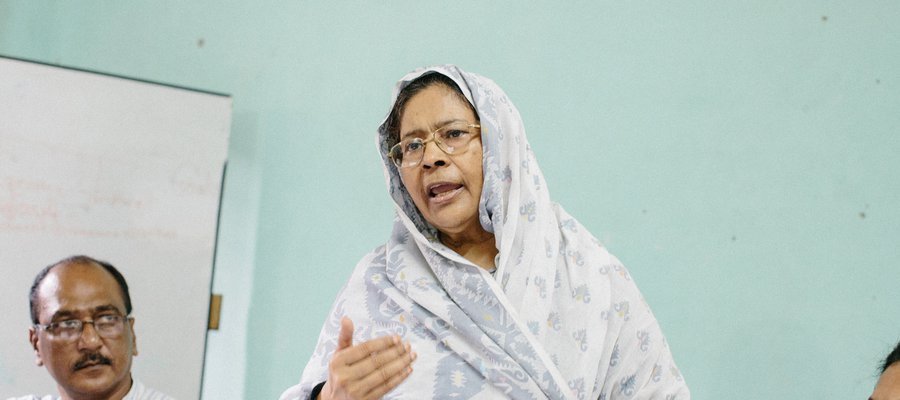Advocacy in Bangladesh

We have a strong relationship with the Government of Bangladesh
The Leprosy Mission has been working in Bangladesh since 1991 and has been working with the Government of Bangladesh since 1996. They have a particularly good relationship with the National Leprosy Programme and the Health Department. Our team has been using their advocacy to create space for other civil society organisations and Disabled Peoples' Organisations.
Our advocacy successes in Bangladesh
Recruiting more government-level leprosy staff and increasing leprosy budgets
Through their advocacy work, our team have been able to encourage the government to recruit more leprosy staff. This has resulted in 206 new staff leprosy-specific government roles across the country. Their advocacy work has also led to an increase in the National Leprosy Programme budget.
Making MDT more accessible
MDT (Multi-Drug Therapy) is the treatment for leprosy. Previously, MDT was only available at certain locations within Bangladesh. This was causing problems, as people were having to travel long distances in order to receive treatment, something that proved very difficult for many people who needed MDT. Thanks to the advocacy work of our team in Bangladesh, the government now provides MDT through district-level healthcare providers, making it much easier for people to access the treatment they need.
Improved mapping of leprosy
The government has changed their mapping of leprosy in Bangladesh to reflect new case finding that has been led by our team in Bangladesh. Government mapping too often relies on leprosy patients to present at hospitals or with healthcare providers. Our team have been encouraging active case finding, instead. Since 2015 they have identified 2,000 new cases, which includes a 200 percent increase in some districts. This active case finding has allowed the government to reallocate resources to the districts that have now been shown to have high numbers of leprosy cases.
Working across multiple government ministries
Our team do not just work with the Ministry of Health. People affected by leprosy, just like any citizen, have their lives influenced by all government ministries. To reflect this, our team have been working with the welfare department to ensure people affected by leprosy can access the welfare support that they need. They have also worked with the agriculture department, because agriculture policy does not recognise people with disabilities as farmers, but many people with disabilities get their livelihoods from agriculture. They met with MPs to encourage them to revise agriculture policy so that farmers with leprosy and disabilities can make use of government subsidies and support.
Advocacy outside of government
Advocacy is not just about working with government. Our team has also worked with private sector shoe makers in order to provide specialist shoes for people affected by leprosy. They are working with local universities on research projects and they are forming a national level leprosy organisation by working with leprosy and disability organisations across Bangladesh.